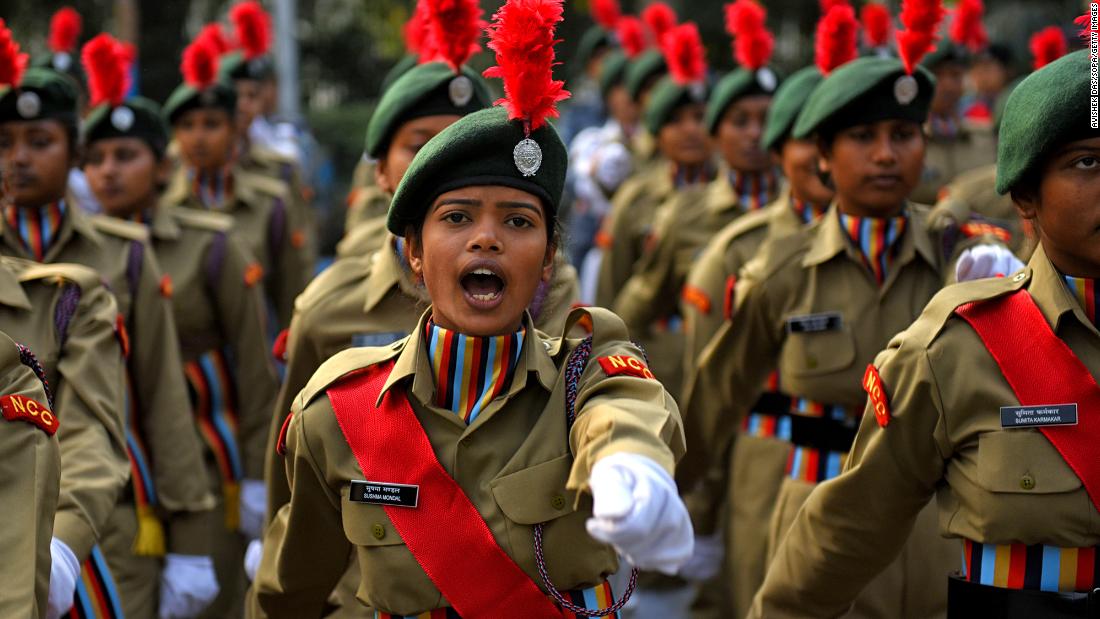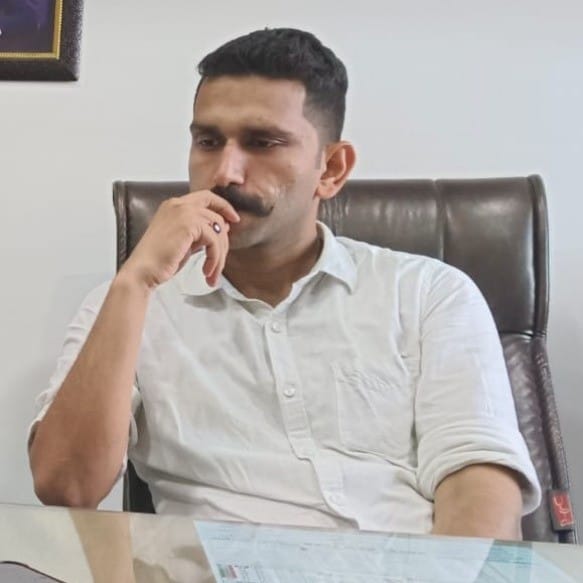“All serving women officers on Short Service Commission shall be

Best way to automate statutory/referential drafting
“All serving women officers on Short Service Commission shall be considered for the grant of Permanent Commission irrespective of length of the service which has been rendered by them.”
Citation: Civil Appeal Nos. 9367- 9369 of 2011
Date of Judgement: 17th February. 2020
Bench: Dr. Dhananjaya Y. Chandrachud (J), Ajay Rastogi (J)
Facts:
- Writ Petitions were instituted before Delhi High Court in 2003 and 2006, seeking Permanent Commission in Army for women in parity with their male counterparts.
- Under Section 12 of Army Act, 1950, Union Government have the power to notify regarding recruitment of female candidates which was done periodically in 1992, 1996 and 2005.
- Women Special Entry Scheme (Officers’) was notified under Army Instruction in 1992 which was governed by Terms of Engagement. Para 19 allowed commission for only 5 years which was not extendable beyond that and no permanent commission was allowed.
- In 1996, amendment was notified to Women Special Entry Scheme which extended the period further for 5 years. This was further extended to 14 years in 2005 by Ministry of Defence. The process of induction under Women Special Entry Scheme was also replaced by Short Service Commission.
- Respondents were selected in Army as Short Service Commission Officers’ commencing from 1995- 96.
- In February, 2003 PIL was filed by Babita Puniya, an advocate before Delhi High Court for grant of Permanent Commission to Short Service Commission Officers in Army.
- During course of proceeding, two circulars were issued on 20th July, 2006 regarding tenure, substantive promotion and adjustment of seniority.
- Serving Women Special Entry Scheme Officers were given an option to move to the new Short Service Scheme or to continue under the erstwhile Women Special Entry Scheme. The first batch of women officers under the new scheme entered the Army in 2008.
- On 16th Oct, 2006, a separate PIL[1] was instituted before Delhi High Court by Maj. Leena Gurav challenging circulars dated 20th July, 2006 and seeking Permanent Commission for women officers.
- On 26 September, 2008, Ministry of Defence issued circular granting Permanent Commission to Short Service Commission women in JAG Deparment and AEC. This was challenged before Delhi High Court by Major Sadhya Yadav as it was granting Permanent Commission only prospectively and only to certain specified cadres.
Decision of Division Bench of Delhi High Court:
Court on 12th March, 2010 issued:
- Recruitment of women officers in areas of operation and not offering Permanent Commission to Short Service Commission Officers across the board for men and women without distinction as a part of policy management, are policy decisions which are not to be interfered with.
- Short Service Commission Officers of Air Force and Army who opted for Permanent Commission but granted extension of Short Service Commission, should be given Permanent Commission with consequential benefits.
- Women Officers who had filed the petition and retired during pendency of petition are also entitled for consequential benefits.
- Those who have not attained the age of retirement for Permanent Commission Officers should be reinstated in service with consequential benefits.
Policy document of 25th February, 2019:
During the pendency of appeal, the Union Government in the MoD issued a policy document dated 25 February 2019 for the grant of PCs to SSC women officers in eight arms or services of the Army, in addition to the JAG and AEC which had been opened up earlier for PC.
Policy document includes-
- Women officers will continue to be commissioned in the ten arms/services as earlier with no change in their tenure of SSC engagement;
- On the completion of three years and before completing four years of commissioned service, they will be required to exercise an option for the grant of PC and the choice of specialization;
- SSC women officers will be considered for the grant of Permanent Commission based on the availability of vacancies and subject to willingness, suitability, performance, medical fitness and competitive merit;
- On the grant of Permanent Commission, women officers will be employed “in various staff appointments only” in accordance with their qualifications, professional experience, specialization, if any, and organizational requirements;
- While women officers who are granted PCs will continue to be a part of their parent Army/service, “they would serve on staff appointments only” both within the parent Army/service and in other fields of specialization;
- Further career progression in selected ranks will be within the existing authorized strength of officers in the Army and no additional select rank vacancies will be created;
- Women officers who fail to exercise the option for Permanent Commission will be governed by the terms and conditions under which they were commissioned; and
- The policy would come into effect prospectively from the date of the issuance.
Decision of the Apex court:
Court disposed off the appeal by making following changes to the Policy document taken by Union Government on 25th February, 2019:
- All serving women officers on Short Service Commission shall be considered for the grant of Permanent Commission irrespective of any of them having crossed fourteen years or, as the case may be, twenty years of service;
- Women officers on Short Service Commission with more than fourteen years of service who do not opt for being considered for the grant of the Permanent Commission will be entitled to continue in service until they attain twenty years of pensionable service;
- As a one-time measure, the benefit of continuing in service until the attainment of pensionable service shall also apply to all the existing Short Service Commission officers with more than fourteen years of service who are not appointed on Permanent Commission;
- The expression “in various staff appointments only” in para 5 and “on staff appointments only” in para 6 shall not be enforced;
- Short Service Commission women officers with over twenty years of service who are not granted Permanent Commission shall retire on pension in terms of the policy decision; and
- At the stage of opting for the grant of Permanent Commission, all the choices for specialization shall be available to women officers on the same terms as for the male SSC officers. Women SSC officers shall be entitled to exercise their options for being considered for the grant of Permanent Commission on the same terms as their male counterparts.
However, these measures were made available only to those officers in service or those who had moved the Delhi High Court by filing the Writ Petitions and those who had retired during the course of the pendency of the proceedings.
Key law points established in the case:
- Are provisions of Army Act, 1950 which imposes restrictions on Fundamental Rights, void?
No
Court observed that Article 33 of Constitution empowers Parliament to determine by law the extent to which the rights conferred by Part III of constitution shall be restricted in their application inter alia to the members of Armed Forces.
In R. Viswan v. Union of India[2], court held that restrictions imposed upon fundamental rights in exercise of the power conferred by Article 33 must be “absolutely necessary for ensuring proper discharge of duties and the maintenance of discipline”.
In Lt. Col. Prithvi Pal Singh Bedi v. Union of India[3], court held that law enacted in exercise of the power conferred by Article 33 should specify the degree of restriction or total abrogation of each right.
As the provisions of Act formed an inherent part of the legislation[4], so Section 12 of Army Act, 1950 which provides the power to central government to make notify regarding recruitment of female candidates is integral part of Army Act, 1950 which is made under the power given to Parliament by Article 33.
- Whether depriving Short Service Commission women officers of the Permanent Commission grant on the ground that they have crossed 14 years of service justified?
No
Court observed that Delhi High Court judgement was given on 12th March, 2010 which was not stayed during the pendency of appeals. Through order dated 2nd September, 2011, court clarified that stay by Government as an interim measure is cause an action for contempt. The situation of women officers with service above 14 years is only due to Union Government failure to comply with directions of Delhi High Court.
So, Short Service Commission women officers, both within and beyond the period of 14 years were made equally entitled to consideration for the grant of Permanent Commission.
- Do Policy document taken by Union Government on 25th February, 2019, apply prospectively only?
No
Court clarified that prospective application of the decision does not mean that it would apply to women officers who have been appointed as Short Service Commission Officers after the date of the decision. Union Government has entitled the women officers already in service but with less than 14 years’ service for Permanent Commission. This implies that policy decision will apply to all women Short Service Commission Officers who are currently in service irrespective of the length of service which has been rendered by them.
- Do Permanent Commission of women officers in Armed Forces constitute ‘matters of policy’ in which courts cannot interfere?
No
Court referring to Union of India v. P. K. Chaudhary[5], held that they are conscious of the limitations on judiciary in matters related to Armed Forces. But the present situation had came due to the non- implementation of the binding directions of Delhi High Court by Union Government and non- intervention would be injustice for respondents.
- Is it justified to bar women from criteria or command appointments?
No
Court held that absolute bar on women seeking criteria or command appointments would be violation of equality under Article 14 of Indian Constitution. The right to equality is a right to rationality. Whether a particular candidate should or should not be granted a criteria or command assignment is a matter for the competent authority to consider having regard to all the record of service, performance and organizational requirements.
Army was not able to provide any justification as to why women should not be considered for any criteria or command appointments, which is not sustainable before law.
[1] WP(C) 16010 of 2006.
[2] (1983) 3 SCC 401.
[3] (1982) 3 SCC 140.
[4] Ram Sarup v. Union of India, (1964) 5 SCR 931.
[5] Civil Appeal No 3208 of 2015, decided on 15 February 2016.



